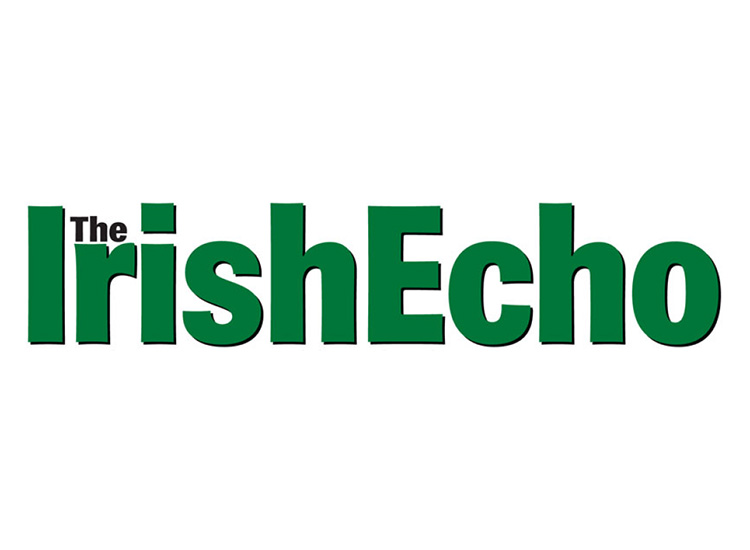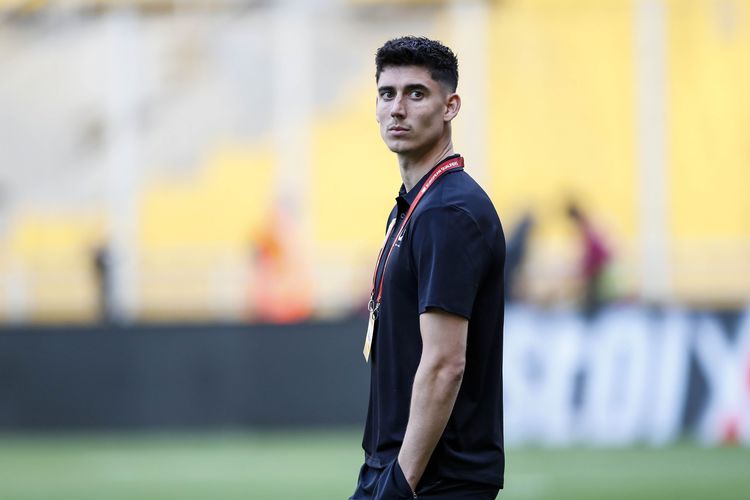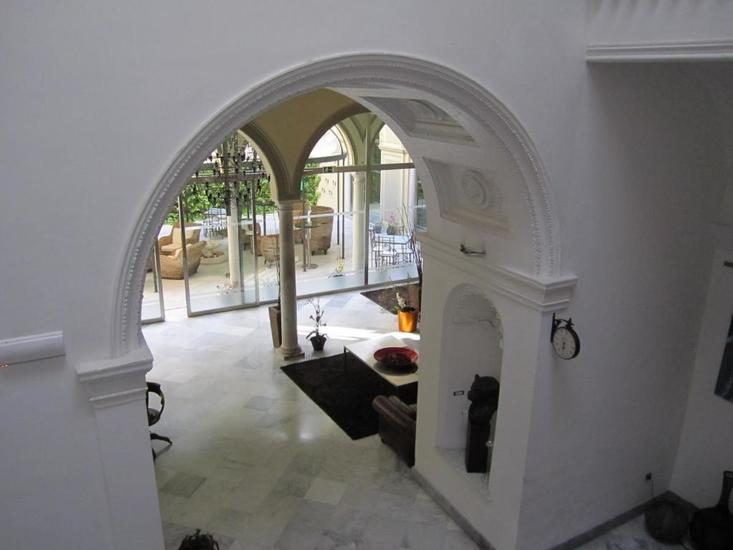Sonya Kelly gets tied up in the red tape of immigration regulations in "How to Keep an Alien."
PHOTO CREDIT: GER HOLLAND
By Orla O’Sullivan
“Why would you want to live in Ireland where sunshine is only a rumor?” the native Sonya accusingly asks Australian Kate on a drunken night out in Dublin.
The two have been working on a play that’s not going well and so committed to a night of determined drinking. Or, as they put it, to “push the f***-it button.” For actor Sonya Kelly, it’s because she is facing a mid-life crisis (“I have wasted my life pretending to be fake people to amuse real people!”) For stage manager Kate Ferris, it’s because she is about to be deported: her visa runs out in two weeks.
“I just think the people are beautiful,” Kate replies--or “Oy just…” in her broad-voweled Brisbane accent. It slowly dawns on Sonya, “that means she thinks I am beautiful!” and the first serious love affair of her life begins.
They say the course of love never runs smooth. It’s truer when the two lovers can’t legally live in the same country. Kate is on the verge of becoming an illegal alien and Sonya has no hope of getting a visa for Australia. Demand for actors in their 30s isn’t there, she explains.
Since Kate doesn’t qualify for the automatic visa extension granted immigrants earning more than €60,000 a year (“In this business? Ha!” Kelly interjects) the two choose the other route to Irish citizenship: establishing that they are a serious item and that Kate has ties to Ireland. They have to do this often from opposite sides of the world and face a Catch-22 obstacle that the authorities consider as partners those who have been together for at least two years, whereas this pair met at the end of Kate’s one-year visa.
The quest also led to Kelly’s second autobiographical show, “How to Keep an Alien,” just opened at the Irish Arts Center. Her entry in Origin’s 1st Irish follows her solo show in the 2013 festival “I Can See Clearly Now.” (See Kelly’s interview in the recent Sept. 7 issue.)
Both are very funny, but this is mellower and sweeter, and less maniacal.
It’s evident, also, why “Alien” won the best production award in the Dublin Fringe Festival, where it was first performed in 2014. Kelly and her stage manager Paul Curley break the fourth wall and he occasionally acts and sings. Moreover, the sound design by Carl Kennedy is hugely evocative.
When excerpts from the letters of Alison’s great, great grandmother, who emigrated to Australia in 1862 after being forced off her County Offaly farm are voiced over, the plaintive cry of seagulls makes them even more poignant. When Sonya first goes to bed with Kate, the woman with “eyes like the rabbits on ‘Watership Down,’” this is hilariously conveyed by Curley’s musical-worthy rendition of the film’s theme song, “Bright Eyes.” (Such nostalgic references were a wonderful feature of Kelly’s last play.) The frustrations of a long-distance relationship are communicated by an intermittent Skype connection and the numbing effects of take-a-number encounters with bureaucracy are rendered over a tinny PA system.
Very credible sounding civil servants in the Irish National Immigration Bureau botch foreign names as they call residency applicants from Japan, Mexico, and—Australia!—while Sonya sits, hoping herself and Kate will not be called by one particular official. “He looks like the kind of man who lives with his mother and has a porn collection, which she found and didn’t say anything about because she doesn’t want him to leave.”
If such streams-of-consciousness or rants like, “I hate camping, it defeats the purpose of evolution!” make you laugh, this tale of how “a thing became a ring” will not disappoint.
“How to Keep an Alien,” written and performed by Sonya Kelly, and directed by Gina Moxley, is playing at the Irish Arts Center, 553 West 51st Street, until Oct. 1, as part of Origin’s 9th Annual 1st Theatre Festival. Tickets from irishartscenter.org or (866) 811-4111.









